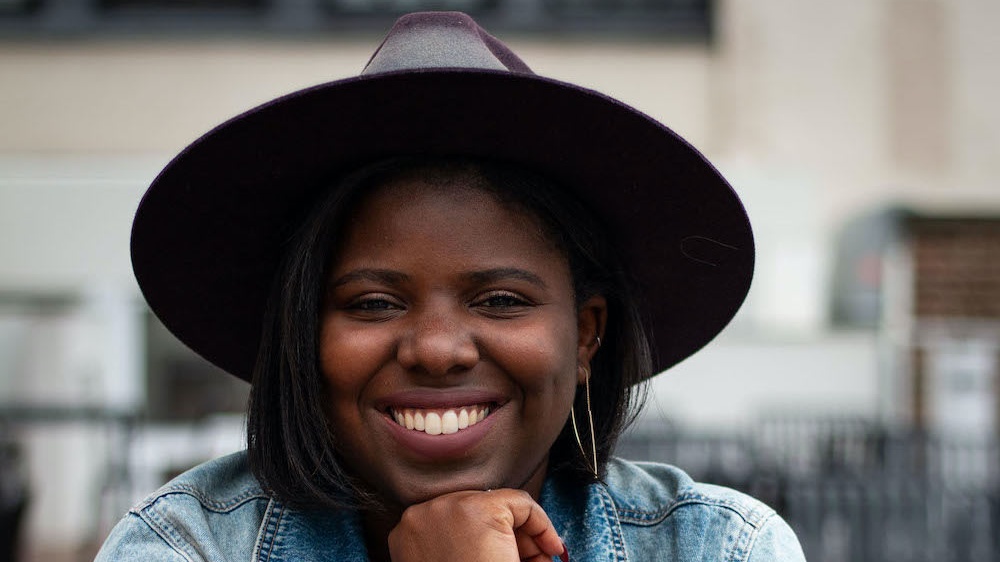More than a year ago, the COVID-19 pandemic uprooted millions stateside and even more overseas via lockdown, canceled events and led to economic decline. Unfortunately, one demographic has been hit particularly hard in the United States compared to others: women of color who run small businesses.
A new organization, IFundWomen of Color (IFWoC), founded in January 2020, aims to tackle the disparity not only brought on by the pandemic but the general inequities faced by women of color who own businesses. IFWoC is an extension of IFundWomen, which seeks to posit women entrepreneurs in their early-funding stages with the means needed to take their businesses to the next level. Resources offered include coaching sessions, networking opportunities and access to grants.
According to the 2021 State of Small Business Research presented by Caress and IFWoC, roughly 70% of women surveyed revealed that their company's annual profits saw a dip because of the pandemic. Furthermore, those impacted on average experienced a drop in earnings by 46%.
While those numbers are difficult to absorb, the study did also indicate some upswing in the near future. Sixty percent of all businesses operated by women of color predicted sales would improve this year and almost three-quarters of those same owners believe their companies will fully recover by early 2022.
Women of color represent the fastest-growing segment of new entrepreneurs, per Forbes.
Olivia Owens, creator and general manager of IFWoC spoke exclusively to Blavity about government accountability, systemic biases set up in the economic system and the challenges women-owned businesses face on the path to success.
"Through our partnership with Caress, we are taking 150 women of color entrepreneurs through the Dreams to Reality Fund program which helps founders prep, launch, and execute successful crowdfunding campaigns with the support of a 1:1 business coaching scholarship, a grant, and a cohort of women navigating the same experience," Owens shared.
Per Owens, female founders raised just 2.3% of the venture capital dollars deployed in the United States. For Black and Latinx founders, that number totaled less than 1%. Since IFWoC's inception, Owens has been tirelessly working to address the funding gap that women face.
In many cases, women of color aren't afforded the luxury of taking a chance in comparison to white male counterparts. In order to bring them peace of mind, Owens outlined how IFWoC will provide candidates resources to guide their decision-making.
"We are providing a low-risk setting for these founders to test out ideas, get their community involved, and build the first stages of their businesses," the founder said. "We know that leveraging crowdfunding to prove demand for your product or service before you invest in supply allows entrepreneurs to avoid going into debt in the earliest stages of their businesses, which gives founders the confidence and access to [the] capital they need to push their businesses forward."
According to the U.S. Small Business Association, the Paycheck Protection Program (PPP) was established to grant businesses loans to help retain employees during the COVID-19 outbreak. Over time, it became apparent that certain companies with plenty of revenue were receiving ludicrous amounts while organizations that desperately needed assistance were left behind. For example, businesses located at properties controlled by Ivanka Trump and husband Jared Kushner, former senior members of former President Donald Trump's administration, were awarded more than two dozen PPP loans totaling over $3.65 million.
"The writing was on the wall: to be considered for the first PPP loans, you had to apply through your bank and large, national banks got priority access to the (limited) pool of funds," Owens explained. "Many of the founders we work with at IFundWomen are sole proprietors, or solopreneurs, as we call them, and maybe don’t have a business bank account.
"Recognizing that women of color entrepreneurs and small business owners face specific challenges and lack of access when it comes to starting or sustaining their businesses, together with Caress, we conducted a report that looked at the state of women of color business owners in the past year," Owens added. "It found that 81% of women surveyed did not receive emergency government assistance to support their business in 2020. Our focus at IFundWomen of Color has always been to provide alternative funding sources, via crowdfunding and grants, that is outside of the realm of hard-to-access loans and venture capital."
Putting the buy-in from investors and other factors about the market aside, starting any venture is easier said than done. Regardless, Owens advises moving forward with the concept, because it continues to open the conversation for more diverse faces contributing to this much-needed conversation.
"The more we are able to shine a light on the experiences and challenges of women of color entrepreneurs, ideally solutions will always be created with them at top of mind going forward," she added.
If you're a woman of color looking for funding for your small business, head to ifundwomen.com/woc.
